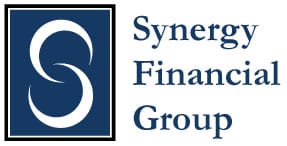While being self-employed is the American dream for many, it can present a few unique challenges if you’re planning to purchase a home. This is because lenders often consider self-employed income less predictable than W-2 wages, so you’ll need to provide extra documentation to present your financial picture in the best light. In this guide, we’ll highlight exactly what you need to know to secure mortgage approval as a self-employed homebuyer.
Gather documents to meet special requirements in advance. Unlike traditional employees, self-employed borrowers don’t have pay stubs or W-2s to verify income. Instead, lenders typically require a combination of bank statements, client contracts or invoices, profit and loss statements, and business licenses or incorporation documents. Also, plan to share tax returns from at least the last two years to demonstrate consistent earnings.
Strengthen your income profile. One of the biggest hurdles self-employed individuals face when trying to secure loans is proving sufficient income. Keep in mind that lenders usually look at your net income after deductions, not your gross revenue as a business owner. While tax write-offs lower your taxable income, they can also make it seem like you earn less than you actually do, so try to minimize deductions in the year before applying for a mortgage. Keep your business and personal finances separate to avoid confusion, and work with an accountant to prepare clear, lender-friendly financial statements.
Boost your credit score. Mortgage lenders want to see financial stability and low risk. A score of at least 620 is usually required for approval, but the higher, the better. Focus on paying down debts, and keep your debt-to-income ratio under 36%. And of course, avoid late payments at all costs by setting up autopayments or regular reminders.
Increase your down payment. A larger down payment can make lenders more willing to approve your loan. Try to save up at least 20% to improve your odds. Building up a cash reserve can also be beneficial. Focus on building savings to cover three to six months of mortgage payments to reassure lenders of your financial stability.
Not all lenders are familiar with how to handle nontraditional income, so look for a professional who specializes in working with self-employed borrowers. It’s also worth mentioning that the mortgage process for self-employed individuals may take longer than it does for W-2 employees, so plan for it to take a minimum of 60 to 90 days from pre-approval to closing.
If you struggle to find a traditional mortgage lender who will approve your loan, consider alternative financing options, such as a bank statement loan, nonqualified mortgage loan, asset-based loan, or debt service coverage ratio loan. Exploring these options can help you secure your next property.
Sources: Investopedia.com, Nerdwallet.com
We are ready to help you find the best possible mortgage solution for your situation. Contact Sheila Siegel at Synergy Financial Group today.







